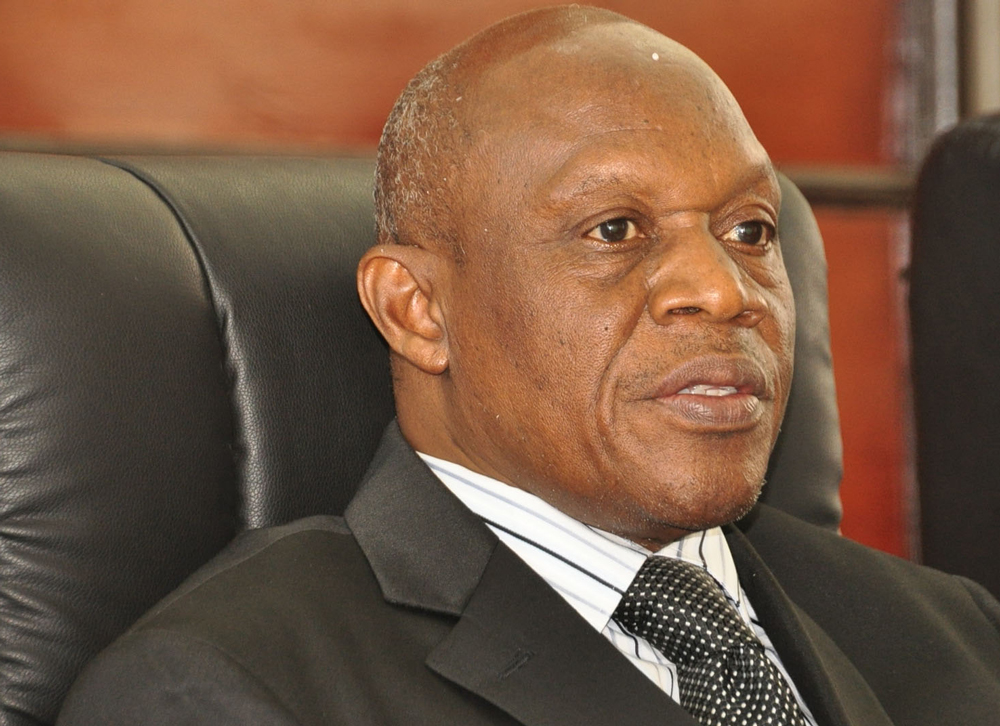2017 Maiden Conference of Legal Academics by KNUST : Justice Atuguba Calls For High Standards In Legal Training

Justice William Atuguba, a Supreme Court judge, has called for high standards in line with global dynamics and emerging trends for Ghana’s legal education system. He made this call at the Maiden Conference of Legal Academics hosted by the Kwame Nkrumah University of Science and Technology (KNUST).
The two-day conference themed: “The Future of Legal Education in Ghana” was aimed at provoking discussions and implementations of the needed changes and reforms in legal education in Ghana in order to secure the future of legal education in Ghana.
Justice Atuguba indicated that as Ghana emerges as a middle-income country with legal needs, investors will be attracted to the country based on legal environment. Academics should train students to keep abreast with global and national trends as law is not an end to itself.
He noted that the theme for the conference is timely as the rationale for reforms on legal education needed a platform to deliberate on issues to make legal education relevant. This, he said stems from the fact that law is the bedrock of society and it is only on the rule of law that we can exercise our God given aspirations.
Giving a background to legal training in the country, he revealed that legal education started in 1957. However, with the Ghana Law School not seeing any improvement in facilities since its inception, there was the need to open additional campuses. He said though the General legal Council (GLC) cannot put restrictions on applicants who qualify, but for quality and practice the G.L.C. has to put some measures in admitting applicants.
He stated “If we are to have success in Ghana’s legal education, stakeholders should face challenges at the LLB, level. As insurmountable number of graduates who pass the LLB. Examinations from institutions do not have enough faculty to train their students. They admit students without corresponding facilities, it is important to improve facilities to improve effective training and quality”.
In addressing the quality of staff , he said the current situation where none of the nation’s universities running legal education courses offered any Doctor of Philosophy (PhD) programme in law did not match up to global standards. He added that in order to have quality in legal education, capacity of staff should be addressed and wondered why a team of legal educators in our institutions could not run PhD programmes for our students locally to reduce cost.
He also bemoaned the fact that Ghana does not have a local journal comparable to international journals in law where research output can be published. Prof. Stephen Offei, Founding Director, Ghana Institute of Advanced Legal Studies, who is also the Foundation Dean of the KNUST Faculty of Law, called for adherence to existing benchmarks and international standards before establishing law schools to reduce the proliferating substandard law faculties.
Professor Offei also called on stakeholders to train lawyers to take up other positions saying “the 21st Century lawyer ought to be multi-dimensional and as such should not be trained only for courtroom purposes, but in all other areas where his or her services could be beneficial to the society”. Reverend Professor Charles Ansah, Pro Vice-Chancellor of KNUST, entreated legal academics to exercise ethics in its highest sense. He also called on the G.L.C. to partner universities to impart legal education if the future of education is to improve.
Professor Mrs. Lydia Apori Nkansah, Dean of the Faculty of Law KNUST, noted that the role of the legal academic in the 21st century is ever expanding. Prof. Mrs. Apori Nkansah reiterated that legal education is undergoing massive reforms by the G.L.C., the body in charge of legal education in the country. However, the future of legal education in Ghana is uncertain and clear hence the theme.
It is against this background therefore that the Conference is being organised to create a platform for legal academics and stakeholders in legal education to explore issues on the ongoing reforms in legal education in the country, the frontiers of the law, its teaching and research in the light of the changing terms in Ghana. Participants of the Conference included legal academics, lecturers, researchers, judges, practicing lawyers, law students, all those engaged in legal education or research.
